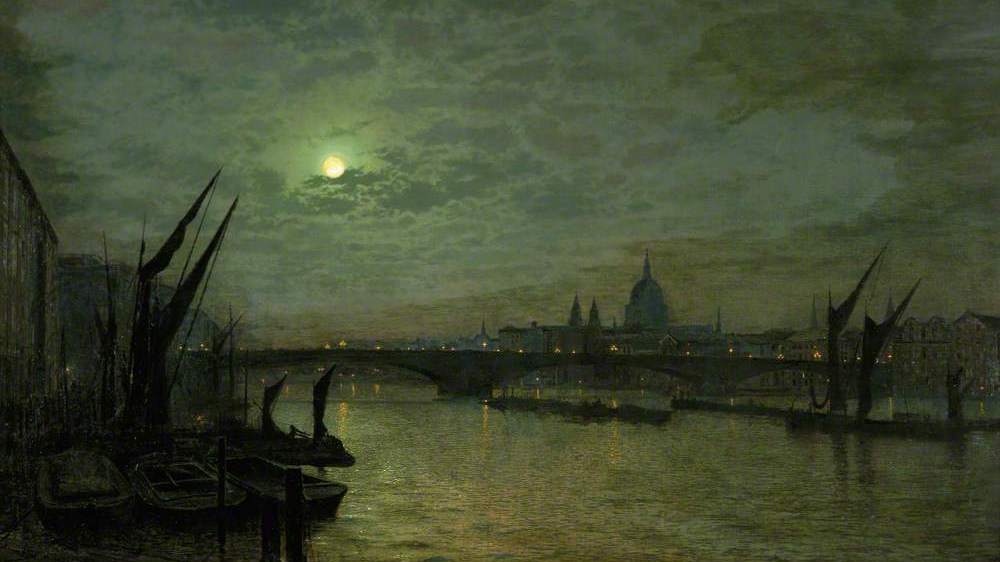Ralph Vaughan Williams’ Serenade to Music was conceived in 1938 as a tribute to the conductor, Sir Henry Wood. The piece endures as a shimmering and sensuous celebration of music itself, set to the majestic words of Shakespeare.
The work’s Royal Albert Hall premiere, commemorating the fiftieth anniversary of Woods’ first concert, was a uniquely collective musical celebration. The ensemble included members from three major London orchestras (the LSO, LPO, and BBC Symphony), as well as sixteen of the most esteemed British singers of the time. At some moments throughout the piece, the voices form a choir. At other times, they emerge as solo lines, designated in Vaughan Williams’ score with the initials of the original singers. The text was adapted from Lorenzo’s speech to Jessica in Act V of Shakespeare’s The Merchant of Venice.
From the opening bars, we enter a serene, nocturnal soundscape. A rich, celestial tapestry unfolds before us, from the solo violin’s “sweet harmony” to the call of the trumpet, summoning Diana, the immortal patroness of the hunt.
How sweet the moonlight sleeps upon this bank! Here will we sit, and let the sounds of music Creep in our ears: soft stillness and the night Become the touches of sweet harmony. Look, how the floor of heaven Is thick inlaid with patines of bright gold: There's not the smallest orb that thou behold'st But in his motion like an angel sings Still quiring to the young-eyed cherubins; Such harmony is in immortal souls; But, whilst this muddy vesture of decay Doth grossly close it in, we cannot hear it. Come, ho! and wake Diana with a hymn: With sweetest touches pierce your mistress' ear, And draw her home with music.
-William Shakespeare, The Merchant of Venice, Act 5, Scene 1
Recordings
- Vaughan Williams: Serenade to Music, Sir Roger Norrington, London Philharmonic Orchestra prestomusic.com
- This 1938 recording, conducted by Sir Henry Wood features the original performers.
Photograph: “The Thames by Moonlight with Southwark Bridge, London,” John Atkinson Grimshaw (1836-1893)


Rachmaninoff, who was in the audience for the premiere, was seen to have been moved to tears, and later wrote to Mr. Wood that he had never been affected so much by a piece of music.